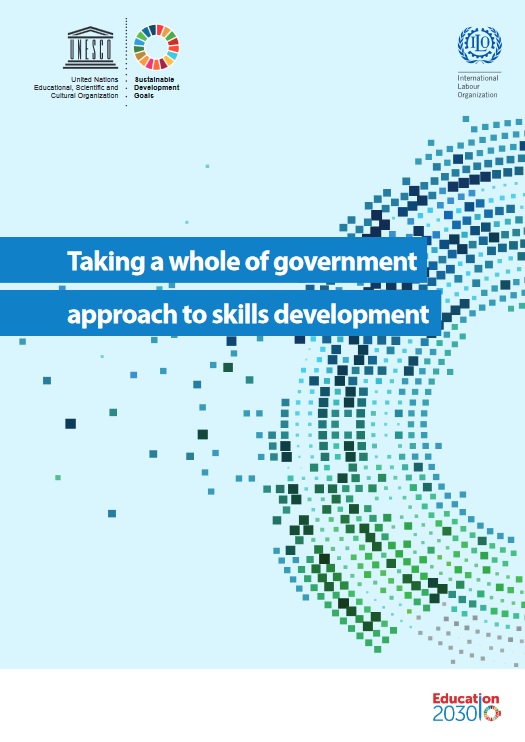Accueil: News | YEM en bref | Pourquoi YEM
Les Pays: Algérie | Israël | Jordanie | Liban | Libye | Maroc | Palestine | Tunisie
Priorités: Anticipation des compétences | Formation pour le travail | Compétences numériques | Compétences entrepreneuriales
Ressources: YEM Skills Panorama | Profils de pays | Données et Statistiques | YEM Publications | Des autres ressources utiles
La mise en réseau: Forum d'échange | Blogs et thinkpieces | Plateforme YEM pour les jeunes | Membres de la communauté | Rejoindre la communauté
Forum: Vue d'ensemble | Forum régional final YEM | YEM Forum régional

| Author/s: | Robin Todd and Muriel Dunbar |
| Éditeur: | UNESCO and ILO |
| Publié: | 2018 in Paris, France |
| Licence: | CC BY-SA |
| ISBN: | 978-92-3-100282-3 (UNESCO) |
Today, technical and vocational skills development is considered to be a crucial vehicle for sustainable development. Many ministries of government, the private sector and other stakeholders, have an interest in technical and vocational skills development systems responding effectively to the broad and intersecting demands of labour market, communities and individuals.
This publication underscores the multi-sectoral character of technical and vocational skills development by recognising its historical fragmentation and the need for systems to simultaneously respond to the external demands of economic growth, social equity and sustainability.
The publication identifies six types of governance models, ranging from systems led by one ministry (for example the Ministry of Education or Ministry of Labour) to ones disaggregated across several ministries. However, whilst the publication concludes that none of the six types of models seems to consistently deliver superior results, effective coordination measures do have a greater impact on some parts of a TVET and skills system compared to others. However, it suggests that a number of underlying features must also be present for good governance and effective inter-ministerial coordination to occur.
This publication is the result of sustained collaboration between UNESCO and ILO. It will be of interest to policy-makers to analyze contextual trends and transform governance of technical and vocational skills development systems to more effectively meet the demands.